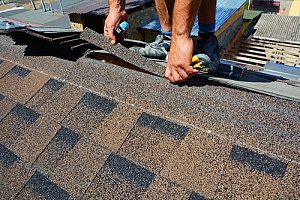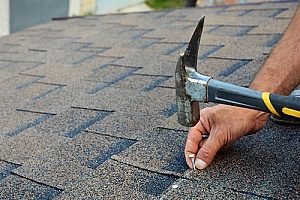 When your roof becomes damaged, you naturally expect your insurance company to pay for the damages. Unfortunately, this does not always happen. Depending on the unique situation and various factors such as the age of your roof, it is possible for your roof insurance claim to be denied. Reading the fine print of your policy can help you determine whether or not a claim may be denied before submission. Keeping your roof in optimal condition through routine roof maintenance is also crucial if you want your claim to be approved. Learn more about why homeowners sometimes experience roof insurance claim denials and how to increase your odds of an approval.
When your roof becomes damaged, you naturally expect your insurance company to pay for the damages. Unfortunately, this does not always happen. Depending on the unique situation and various factors such as the age of your roof, it is possible for your roof insurance claim to be denied. Reading the fine print of your policy can help you determine whether or not a claim may be denied before submission. Keeping your roof in optimal condition through routine roof maintenance is also crucial if you want your claim to be approved. Learn more about why homeowners sometimes experience roof insurance claim denials and how to increase your odds of an approval.
Roof Damage and Covered Perils
Standard homeowner’s insurance covers most common risks to your home. Oftentimes, these risks will be listed as covered perils on your policy. As policies can greatly range from one insurance company to the next, it is important to carefully read through your policy to see what perils are covered and what exclusions are not. When dealing with a roof leak, most insurance companies will approve a claim caused by a falling tree, limb, or other object, hail or windstorm, or excessive weight of snow, sleet, or ice. Vandalism is also a commonly covered peril.
Roof Exclusions in Homeowners Insurance
Most people pay little attention to their homeowner’s insurance policy until it is too late. You do not want to find out that your leaky roof is not covered after your attic starts to flood. Be sure that you understand your homeowner’s insurance policy inside and out to ensure a smooth claim approval later on. While homeowner’s insurance can be used to cover a wide range of roofing problems, there are some exclusions to be aware of.
Your homeowner’s insurance policy may also include a list of exclusions, meaning damage that is not covered. Neglect of roof maintenance is one of the most common reasons for a claim denial. The insurance company expects homeowners to perform routine maintenance to keep their roof in good condition. If the insurance company determines that you have not performed routine maintenance over an extended period of time, your claim may be denied. Ideally, roofs should be inspected by expert roof repair contractors at least once per year. The best time to have your roof inspected is in the fall before winter weather sets in.

Your roof insurance claim may also be denied if there is a presence of mold, fungus, or wet rot on your roof. Mold is often caused by homeowner neglect and a lack of proper roof maintenance. For example, if there is a minor roof leak that you ignore, it could result in mold growth that spreads throughout your roof. When you file a claim, the insurance company will determine how long the mold has existed and if it is found to be an old problem, your claim will likely be denied. Depending on your policy, mold removal may be covered if the source of the mold is a covered peril.
Another common exclusion you are likely to find on your homeowner’s insurance policy is normal wear and tear. Over time, it is inevitable that your roof will experience some deterioration. If the damage found by your insurance company is caused by normal wear and tear, your insurance claim may be denied. This often happens when your roof has reached or surpassed its expected lifespan. Depending on the type of roof you have, this can differ. For example, wood shake roofs have an average lifespan of about 30 years, while fiber cement shingles last about 25 years. Asphalt shingle roofs have an average lifespan of about 20 years.
Damage caused by birds, vermin, insects, and rodents may also not be covered by your homeowner’s insurance. However, there are some exceptions to this rule. For example, a window that is broken by a bird may be covered. However, animal infestations and damage to a roof are usually excluded from homeowners insurance coverage. It is often considered the homeowner’s responsibility to both monitor and protect their roof against animal invasions and other types of slowly-occurring damage. Be sure to check your policy as damage from some pests may be covered, such as raccoons.
Importance of Professional Roof Maintenance
 To keep your roof in optimal condition and avoid the risk of a roof insurance claim denial, hire professional roof repair contractors to perform routine maintenance. One of the biggest causes of roofing problems is a poorly maintained roof. With your roof being one of the largest components of your home, it requires regular inspections, repairs, and maintenance to keep it functioning as it should. With regular maintenance, your roof can last upwards of 20 to 30 years.
To keep your roof in optimal condition and avoid the risk of a roof insurance claim denial, hire professional roof repair contractors to perform routine maintenance. One of the biggest causes of roofing problems is a poorly maintained roof. With your roof being one of the largest components of your home, it requires regular inspections, repairs, and maintenance to keep it functioning as it should. With regular maintenance, your roof can last upwards of 20 to 30 years.
Regular roof maintenance not only increases the lifespan of your roof, but can also minimize common problems like leaks. How often you should have your roof inspected will depend on a number of factors, such as the age of your roof, the climate where you live, and the type of roofing materials used. Often times, a warranty gives homeowners a false sense of protection. However, just because your roof came with a warranty does not necessarily mean all problems will be remedied. There are some exceptions that could result in your roof not being covered. Roof maintenance also helps keep up your home’s curb appeal.
Contact Professional Roof Repair Contractors
Homeowners often do not realize that their roof has suffered damage until it begins to leak. By the time a leak is evident, the damage is usually more much severe than it appears. Even a small leak in your roof can cause water to infiltrate your attic damaging wood framing, insulation, and flooring. In just a short amount of time mold can start to develop on the walls and ceiling. Make the right move by contacting professional roof repair contractors to have your roof professionally inspected and improve your chances of future roof insurance claim approvals.